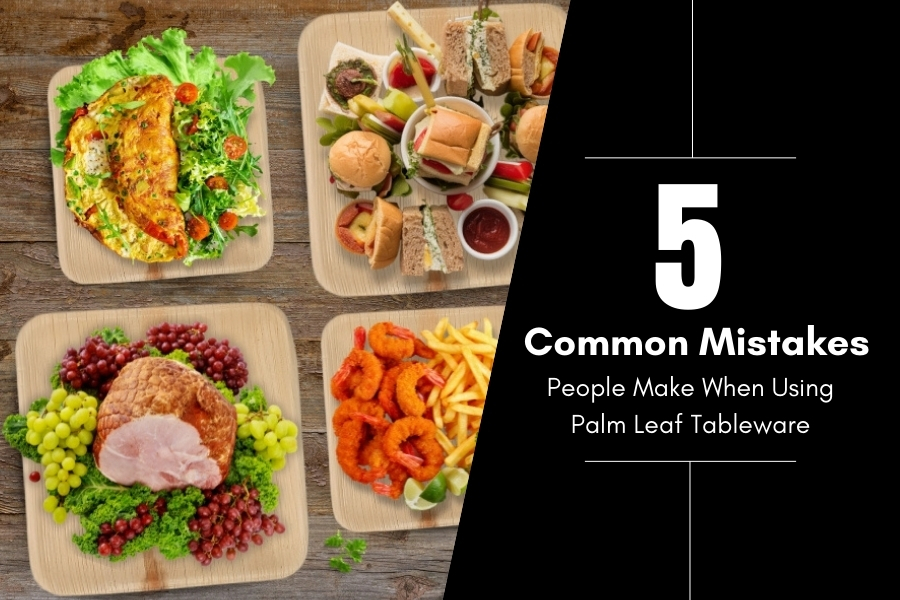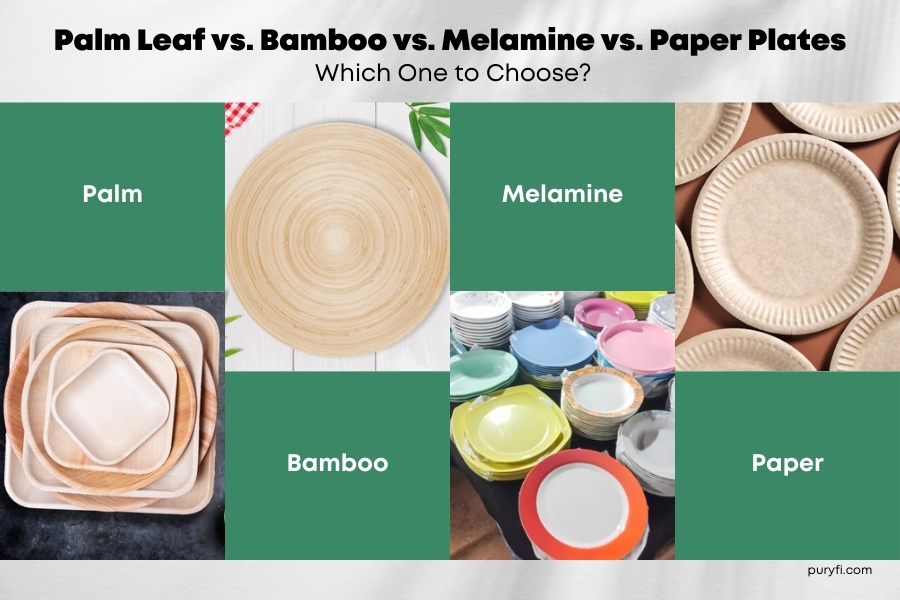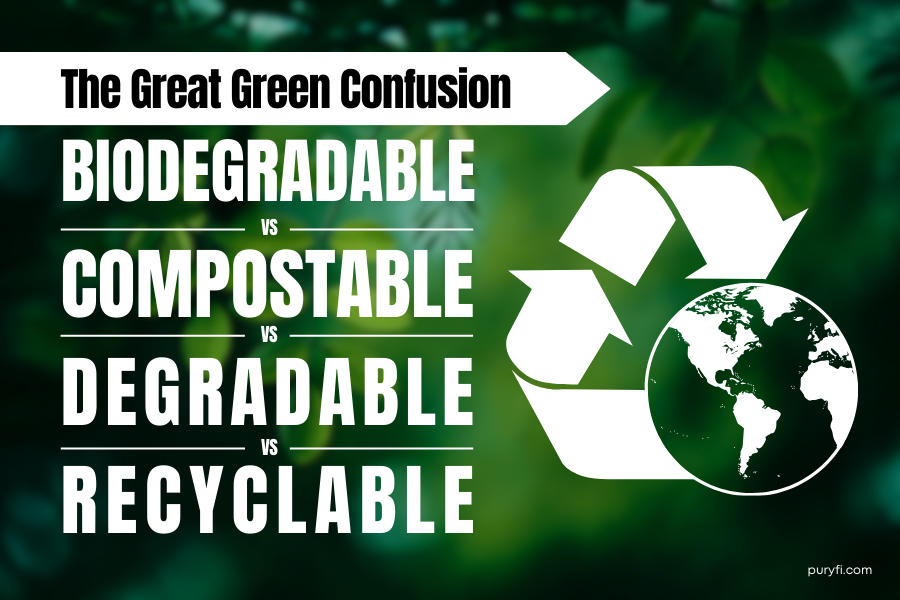Ever tossed out vegetable peels and felt a twinge of guilt? What if I told you that your kitchen scraps could transform into black gold for your garden? Composting at home is one of the simplest, most effective ways to embrace sustainable living, reduce waste, and enrich your soil naturally. Let’s dig (pun intended!) into how to make compost at home, whether you have a backyard or just a small apartment balcony.
What is Compost and Why Compost?
Before we get our hands dirty, let’s talk about what compost is and why composting matters.
What is Compost?
Compost is decomposed organic matter that turns into a nutrient-rich soil conditioner. It’s made by breaking down food scraps, yard waste, and other biodegradable and compostable materials through a natural process involving bacteria, fungi, and microorganisms. Think of it as nature’s way of recycling and it’s a simple and effective way to cut down waste while helping the environment. Every year, millions of tons of food scraps and yard waste end up in landfills, where they decompose without oxygen and release methane, a greenhouse gas much more potent than carbon dioxide.
By composting at home, you reduce the amount of trash going to landfills and create nutrient-rich soil that helps plants grow healthier. Compost improves soil structure, holds moisture better, and reduces the need for chemical fertilizers. Whether you’re gardening, growing houseplants, or just looking for an easy way to be more eco-friendly, composting is a great habit to pick up. Plus, it saves money, and you get free, natural fertilizer instead of buying expensive soil enhancers. So, why not turn your kitchen scraps, eco-friendly palm leaf tableware into something useful instead of tossing them in the trash?
Bonus: If you use sustainable disposable tableware like Puryfi Palm Leaf Plates, they are 100% compostable and can go directly into your compost bin! No guilt, just nature working its magic.
Do read The Great Green Confusion – Compostable vs. Biodegradable to understand the difference between compostable and biodegradable.
How to Make Compost at Home: Step-by-Step Guide
Step 1: Choose Your Compost Bin
First things first – you need a compost bin.
- For small spaces: A store-bought compost bin or DIY plastic container with air holes works.
- For backyards: A large compost tumbler or an open-air compost pile.
Pro Tip: Place the bin in a warm, shady spot with good air circulation.
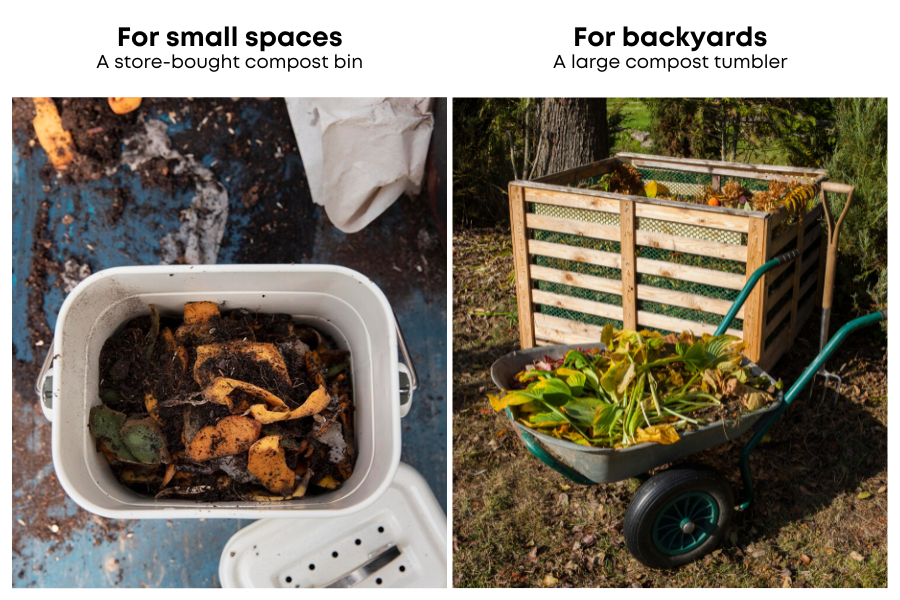
Step 2: Gather Composting Materials
A good compost pile needs a balance of greens (nitrogen-rich materials) and browns (carbon-rich materials). Think of it like a balanced diet for your compost!
| Greens (Nitrogen) | Browns (Carbon) |
| Fruit & vegetable scraps | Dry leaves |
| Grass clippings | Cardboard (shredded) |
| Eggshells | Compostable Palm leaf tableware |
| Tea Bags (without staples) and tea leaves | Sawdust (untreated wood) |
| Coffee grounds | Paper towels (unbleached) |
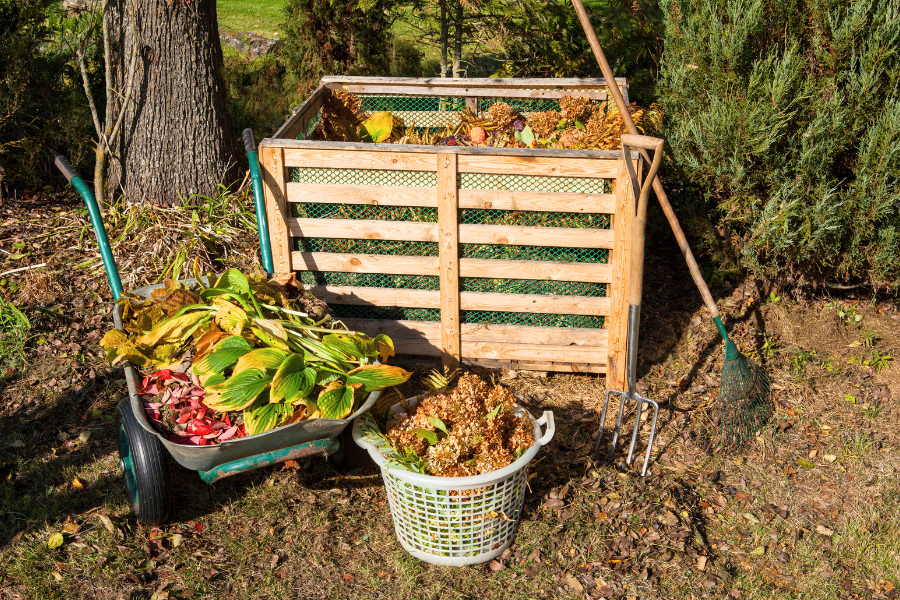
Avoid meat, dairy, and oily foods as they attract pests and slow decomposition.
Step 3: Layer It Right
Just like lasagna, your compost needs layers:
- Start with a base of browns for aeration.
- Add a layer of greens.
- Continue alternating layers, maintaining a 2:1 ratio (browns to greens).
- Sprinkle water to keep it moist but not soggy.
Pro Tip: If it smells bad, add more browns. If it’s too dry, add more greens.
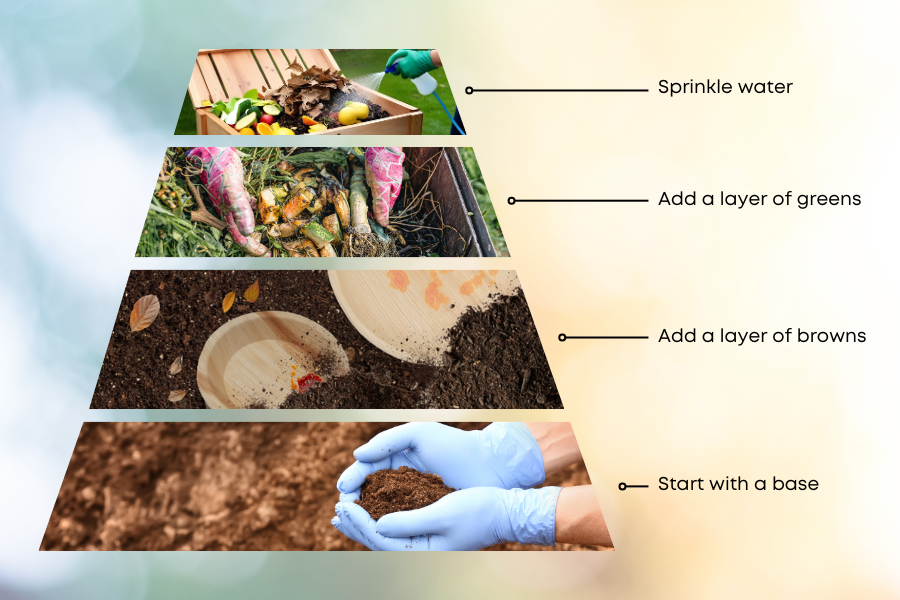
Step 4: Turn & Aerate
To speed up composting:
- Turn the pile every few days to mix in air and prevent odors.
- If using a bin, shake or tumble it.
Want compost fast? Follow the “how to make compost in 7 days” method: chop materials small, turn frequently, and keep moisture just right!
Step 5: Know When It’s Ready
In 2-6 months, your compost should look like dark, crumbly soil with an earthy smell. That’s when it’s ready to use!
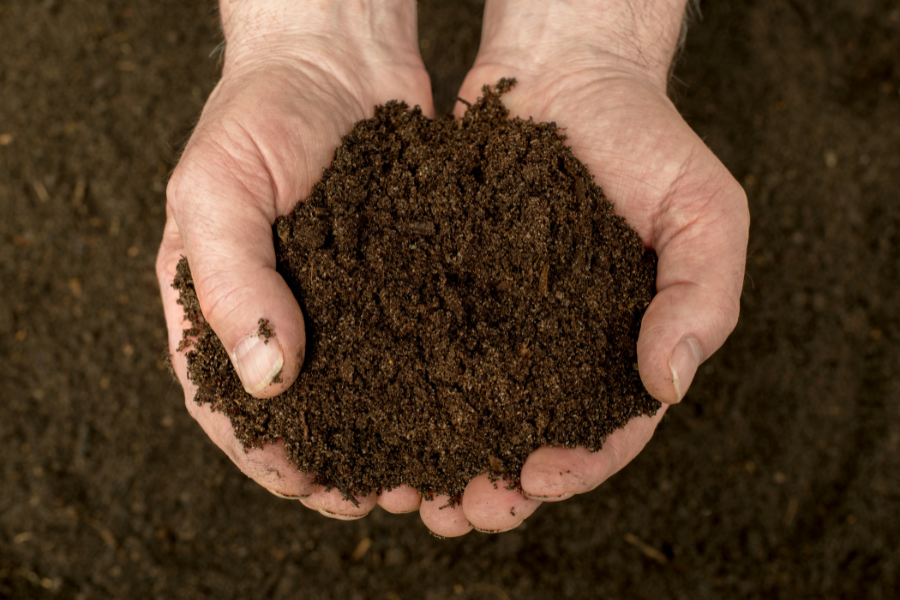
Compost use at home
- For plants: Mix compost into garden beds or potted plants.
- For lawn care: Sprinkle compost over grass as a natural fertilizer.
- For tree health: Add compost around trees to nourish the soil.
Fun Fact: Composting can reduce household waste by 30% or more. Imagine the impact if everyone did it!
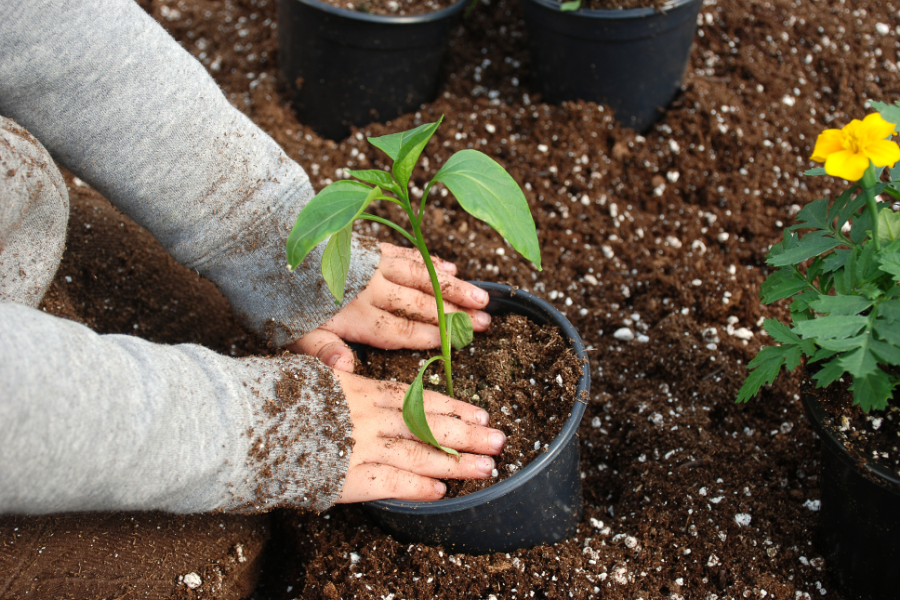
Can You Compost at Home Without a Backyard?
Absolutely! Try vermicomposting (composting with worms) or a bokashi bin for indoor composting. These methods work in apartments without mess or odor.
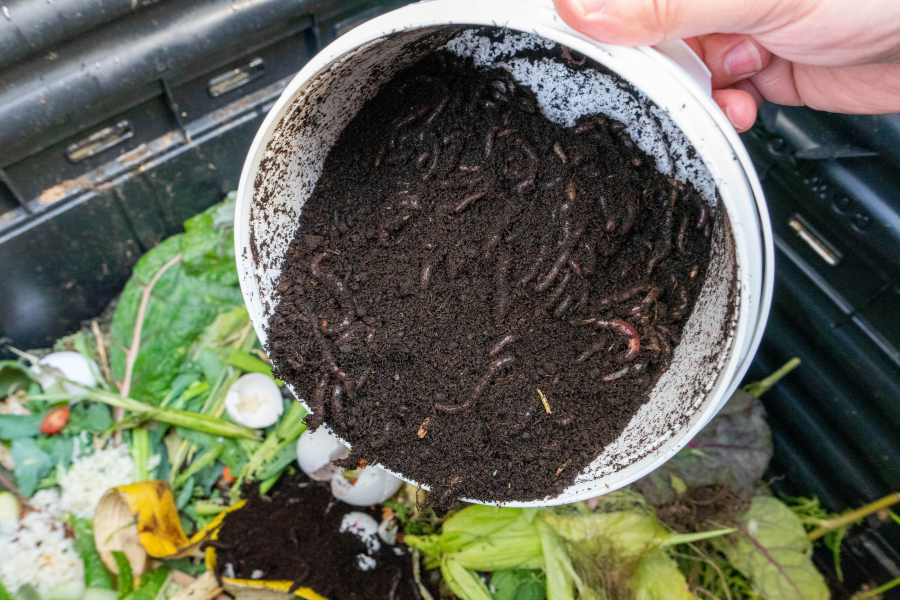
Final Thoughts
Composting at home is easy, rewarding, and great for the planet. Whether you’re making compost in a bin, using vegetable waste, or composting your eco-friendly disposable palm leaf plates, you’re contributing to a greener world. Start today, and let nature do the rest!
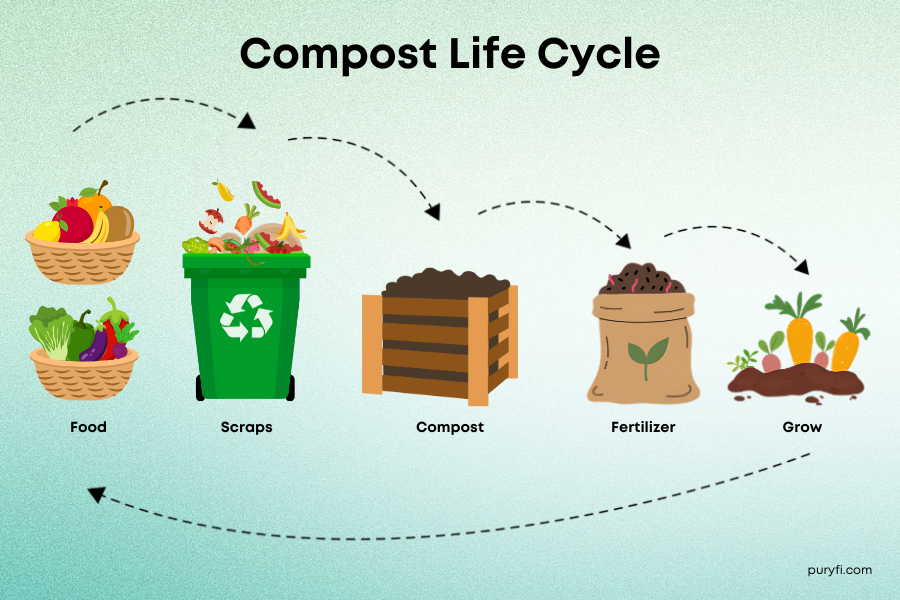
FAQs
Q: Can I compost Puryfi palm leaf plates?
A: Yes! Puryfi Palm Leaf Plates break down naturally in compost piles.
Q: How long does composting take?
A: Depending on conditions, anywhere from 4 weeks to 6 months.
Q: Can I put biodegradable bags in compost?
A: Only if they’re labeled certified compostable – otherwise, they may not break down fully.
Composting is not just about waste – it’s about giving back to the earth. So, let’s get started!


